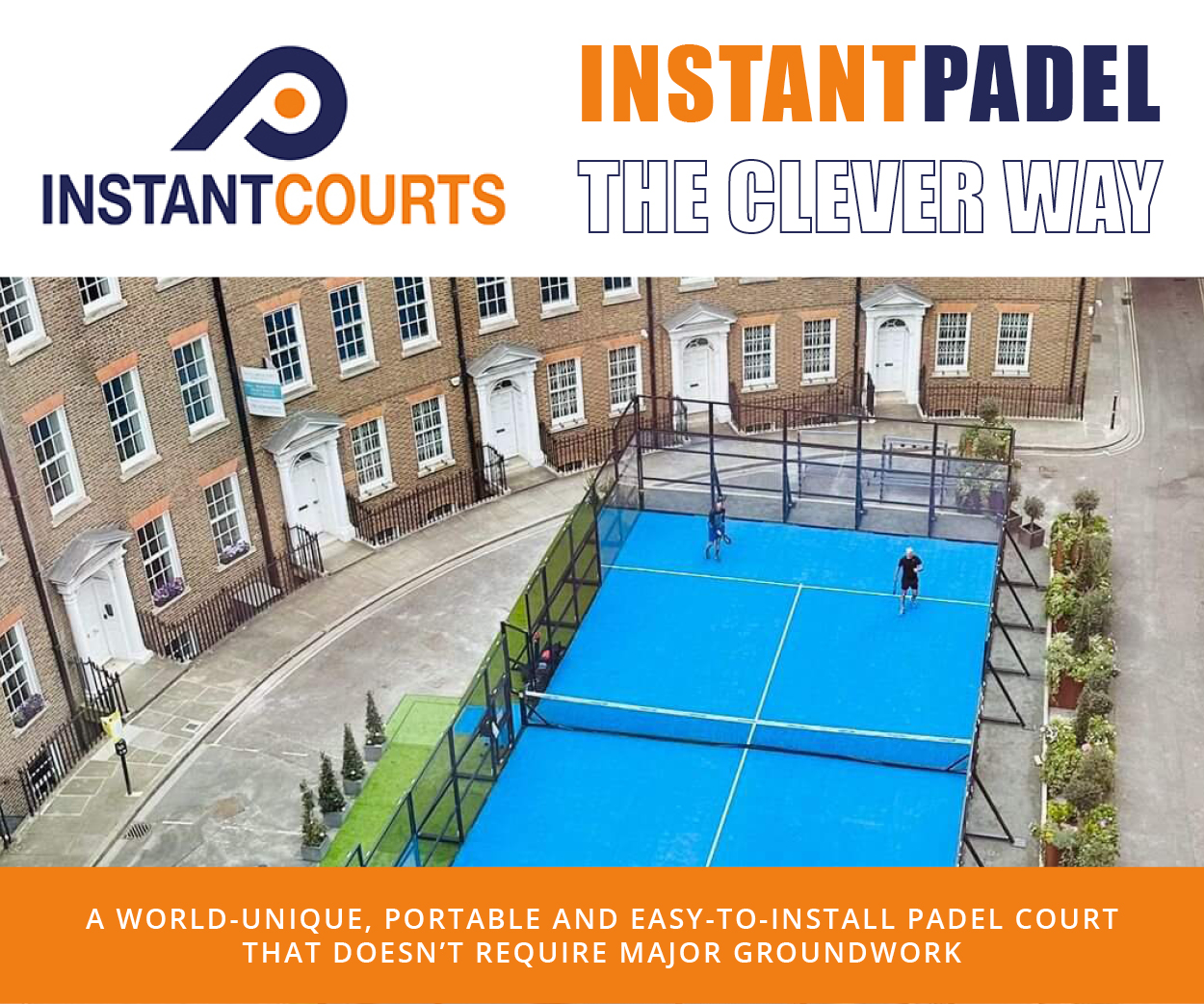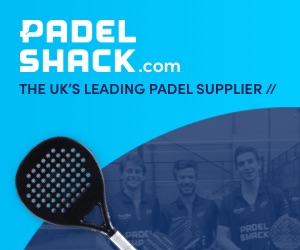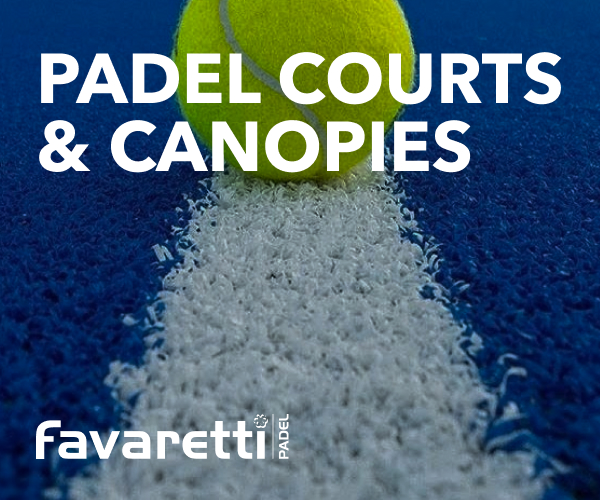NXPadel believe Fibreglass is a “game changer” for the padel court industry as the material offers “advantages at every stage of its journey” from factory to matchplay.
NXPadel, based in Bergamo, Italy, are revolutionising padel courts with the introduction of Fibreglass for the strong, lightweight and resistant qualities it offers.
As reported previously by The Padel Paper, NXPadel’s Fibreglass success story began when its founder, Luca Ceresoli, recognised the qualities of the material in the hull of a boat whilst he was managing a fishing company in the Dominican Republic.
After three years of scientific tests and study, Luca and his son Nicola transferred their appreciation for Fibreglass into producing padel courts. They took their prototype to market and sold almost 1,000 units in the first two years. Last year, they launched NXPadel and are aiming to reach 40 countries in the next five years.
Their Fibreglass models offer advantages in terms of the court’s structure, for the player and the installer when compared to the iron equivalent currently used by the rest of the padel court market.

Firstly, NX Padel’s Fibreglass mesh along the side and rear walls is extremely flexible when hit by a ball or a player’s body. Its resilience means it returns immediately to a flat surface after it is struck and remains flat forever, whereas iron meshes turned to curve over time, affecting the bounce and playability of the court.
Iron meshes also rust, changing their appearance and requiring re-painting. Not so with Fibreglass. As CEO Nicola tells The Padel Paper: “For distributors and installers, you can be 100% sure that you are offering a product that requires zero maintenance and has a very long life.
“You won’t need to re-paint, so you can save time and money and focus on other important projects instead of revisiting products you’ve already sold.”
The colour of Fibreglass is also within the material, so any surface scratches with rackets or watches will not affect its aesthetics, even after many years.
For the player, the important question is: does Fibreglass play any differently to an iron court? The answer is no, except for one factor – the noise. NXPadel’s courts are sound-proof. The mesh surface make very little noise when the ball hits it.
“The first time you play on a Fibreglass court, it seems strange because you don’t hear the noise and your brain doesn’t connect,” laughs Nicola. “But after a few shots, you don’t even notice.”

Reduced noise is an advantage for clubs worried about complaints from neighbours. In fact, governing bodies are starting to get concerned with this issue. The Dutch Tennis Association (KNLTB) has recently introduced guidelines stating that noise from padel courts should not exceed 91 decibels. Tests on NXPadel courts showed an average of 64 decibels – a weight off the mind of any club manager.
But perhaps one of the biggest advantage of NXPadel’s Fibreglass revolution is for distributors, because their courts can be packaged and shipped much more efficiently than iron structures.
NXPadel can ship seven full courts inside one truck and six inside one 40-ft shipping container. With traditional courts, this is usually a maximum of three.
Nicola says: “Not only do you reduce shipment costs almost to zero, NXPadel’s lightweight courts have a great advantage for warehouse management. It saves time and money and is much easier and faster to install. Weight is crucial across every stage of the process.
“Our product is super lightweight, easy to move around and is optimised for every aspect; shipment, loading and unloading, storing, installing and playing. It is incredible. It is super cool. We love this product!”
For more information on NXPadel visit their website.









































